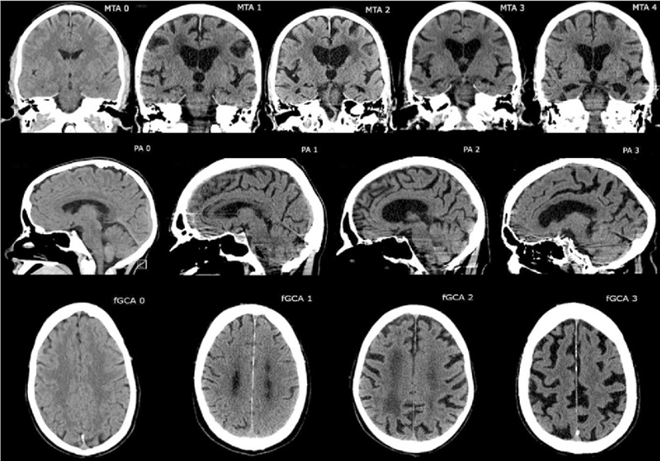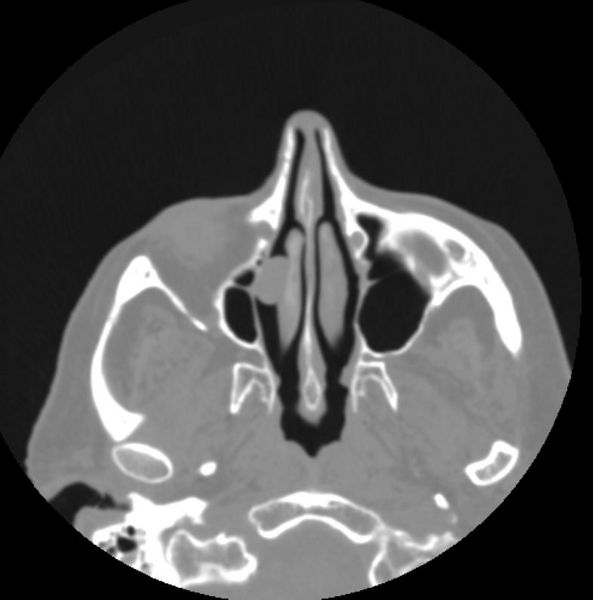
New research suggests a surprising and potentially concerning link between a common habit—picking your nose—and the risk of developing Alzheimer’s disease.
A study published in 2022 revealed a tenuous but plausible connection, indicating that damage to the internal tissues of the nose could create a pathway for certain bacteria to reach the brain.
The brain’s response to the presence of these bacteria appears to resemble signs associated with Alzheimer’s disease. While the supporting research so far is based primarily on studies in mice rather than humans, the findings are considered significant and warrant further investigation.
Understanding how Alzheimer’s gets started remains a complex challenge, and this research could offer new insights into that mystery.

A team of researchers led by scientists from Griffith University in Australia conducted tests focusing on the bacterium Chlamydia pneumoniae. This bacterium is known to infect humans, causing pneumonia.
Significantly, Chlamydia pneumoniae has also been discovered in the majority of human brains affected by late – onset dementia.
The Australian study demonstrated that in mice, this bacterium could travel up the olfactory nerve, which directly connects the nasal cavity and the brain.
Researchers observed that damage to the nasal epithelium, the thin tissue lining the roof of the nasal cavity, made these nerve infections worse. This suggests that the protective barrier in the nose plays a crucial role.
Following the infiltration, the mouse brains responded by depositing more of the amyloid-beta protein. This protein is believed to be released in response to infections.
Plaques, or clumps, of this amyloid-beta protein are found in significant concentrations in the brains of people diagnosed with Alzheimer’s disease.
Neuroscientist James St John from Griffith University, who led the study released in October 2022, commented on the findings.
He stated, “We’re the first to show that Chlamydia pneumoniae can go directly up the nose and into the brain where it can set off pathologies that look like Alzheimer’s disease.”

St John added, “We saw this happen in a mouse model, and the evidence is potentially scary for humans as well.”
The speed at which Chlamydia pneumoniae infiltrated the central nervous system in the mice was notable, with infection occurring within just 24 to 72 hours.
Scientists believe this rapid infiltration highlights how bacteria and viruses may see the nose as a quick and direct route into the brain.
Despite the compelling findings in mice, scientists caution that it is not yet certain whether the effects will be the same in humans. The exact role of amyloid – beta plaques in causing Alzheimer’s also remains a subject of ongoing debate.

Nevertheless, following up on promising leads like this is considered important in the broader effort to understand neurodegenerative conditions like Alzheimer’s.
St John emphasized the necessity of future research. “We need to do this study in humans and confirm whether the same pathway operates in the same way,” he said.
He noted that this type of human study has been proposed by many but has not yet been completed.

While these same bacteria are known to be present in humans, scientists are still working to determine exactly how they get into the brain.
Nose picking is a surprisingly widespread habit, with estimates suggesting as many as 9 out of 10 people engage in it at some point. While its benefits, if any, are unclear, studies like this one suggest it might be worth reconsidering.
Pending future studies in humans to confirm these processes, St John and his colleagues offer preliminary advice based on their findings.

They suggest that picking your nose and plucking nose hair are “not a good idea” due to the potential damage these actions can cause to the protective tissue lining the nose.
One remaining question the team is investigating is whether the increased amyloid – beta protein deposits are merely a natural, healthy immune response that could potentially be reversed once an infection is cleared.
Alzheimer’s is recognized as an incredibly complicated disease, reflected in the multitude of studies and diverse research approaches aimed at understanding it.

Each piece of research, including the one on C. pneumoniae, contributes to bringing scientists closer to finding ways to prevent or stop the disease.
Beyond age, which is a known risk factor, scientists are exploring other potential causes, including environmental exposures.
Once you get over 65 years old, your risk factor goes right up, but we’re looking at other causes as well, because it’s not just age – it is environmental exposure as well,” St John stated.
He specifically added, “And we think that bacteria and viruses are critical.”

A more recent narrative review published in the journal Biomolecules in 2024 also touched on potential factors in Alzheimer’s development.
That paper suggested that “neuroinflammation may also play an — at least partial — role in [Alzheimer’s] pathogenesis.”
The review proposed that one possible factor causing this inflammation could be “accidental exposure of the olfactory mucosa to hands contaminated with soil and feces when picking one’s nose.”
However, pediatrician, allergist, and immunologist Dr. Zachary Rubin cautioned against panic based solely on this review.
Dr. Rubin explained that the 2024 paper is a narrative review, which synthesizes existing literature, rather than a prospective cohort study that directly tracks groups of people who pick their noses over time to see if they develop Alzheimer’s.
He noted that while many people with Alzheimer’s have amyloid beta plaques and neurofibrillary tangles, which may result from chronic neuroinflammation, the review doesn’t definitively prove causation.
Dr. Rubin concluded that the paper “does not prove that nose – picking causes Alzheimer’s,” although he supports reminding people about hand – washing and limiting nose – picking.

Speaking to USA Today, Dr. Heather M. Snyder, vice president of medical and scientific relations at the Alzheimer’s Association, echoed that there is currently no definitive evidence of a cause – and – effect relationship between nose – picking and dementia.
However, she acknowledged that the study authors were exploring a growing area of research focusing on the immune system’s role in Alzheimer’s.
“Increasingly, we know the immune system plays an important role in the underlying biology of Alzheimer’s – there are an increasing number of clinical trials targeting immune – related mechanisms,” Snyder said.

Beyond the potential link to Alzheimer’s, damaging the nasal epithelium through picking also carries other risks.
This includes an increased risk of respiratory infections, such as pneumonia or even COVID – 19, as the weakened barrier allows pathogens easier access.
Habitual damage can also potentially lead to the breakdown of cartilage in the nose over time, causing structural issues.
Additionally, it can lead to the loss of protective nasal hairs, which naturally filter airborne particles and microbes.

For those who pick their noses due to dryness, Dr. Linda Dahl, an ear, nose, and throat specialist, suggests using a saline spray or blowing one’s nose more often.
She also recommends applying “a little bit of Neosporin or another antibacterial ointment at the rim of the nose twice a day... where it can add moisture and kill bacteria.”
While research continues to clarify the link between nasal health, bacterial exposure, and Alzheimer’s, experts suggest that maintaining good nasal hygiene may be more important than previously recognized.
Simple steps like avoiding aggressive nose – picking and plucking hairs can help protect the delicate nasal lining.
Paying attention to lifestyle factors known to support brain health remains crucial.

Research presented at the American Academy of Neurology 2023 meeting highlighted seven specific habits, part of the American Heart Association’s “Life’s Simple 7” program, that may lower dementia risk.
These include being active, eating better, maintaining a healthy weight, not smoking, maintaining healthy blood pressure, controlling cholesterol, and having normal blood sugar.
A higher score on these habits in middle age correlated with a lower risk of dementia later, with each point increase reducing risk by 6%.

A heart-healthy diet rich in omega – 3 fatty acids, lean protein, fruits, vegetables, and whole grains has also been suggested to potentially reduce Alzheimer’s risk significantly.
In the ongoing effort to understand and combat Alzheimer’s, researchers are exploring many avenues.
The potential link between nasal health, bacterial entry, and brain health, while still requiring more human research, serves as a fascinating piece of the puzzle.
Read more about: Eat Like the World’s Longest-Lived People with These 9 Daily Foods
Until more definitive evidence emerges, perhaps the thought of potential risks is reason enough for caution with this common, often unconscious, habit.
Related posts:
Study on Mice Suggests Surprising Link Between Nose-Picking And Alzheimer’s
Study suggests nose-picking may be linked to Alzheimer’s risk, mouse model shows
Could Nose Picking Raise Alzheimer’s Risk? Scientists Investigate a Potential Connection to Brain Health




